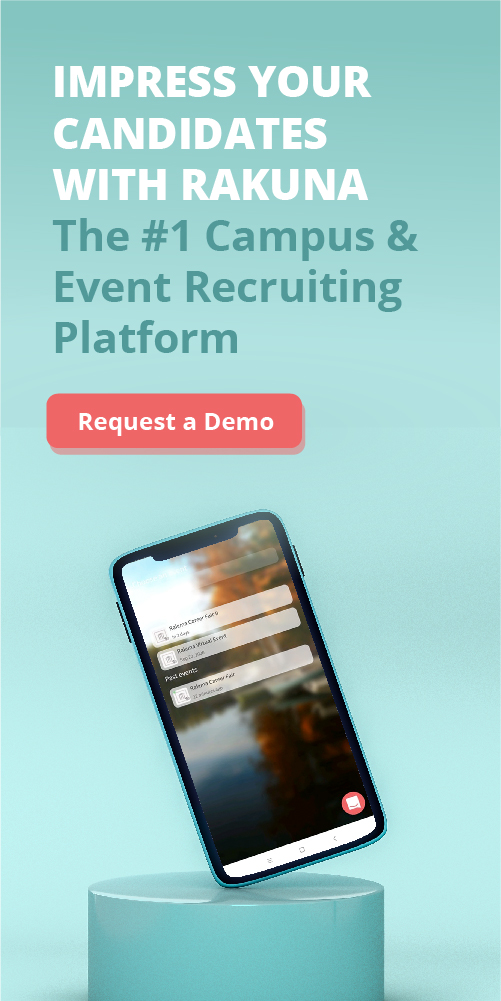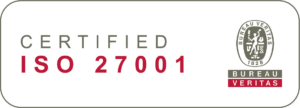In today’s job market, recruiters are facing an overwhelming challenge: too many applications, and too few truly qualified candidates. With layoffs surging—U.S. job cuts spiked 245% in February 2025 compared to the previous month, reaching levels not seen since July 2020—job seekers are flooding open positions at record rates. This wave of applications makes it harder than ever to sift through the noise and connect with the right talent.
How can recruiters avoid getting buried under unqualified resumes and instead focus on the candidates who truly fit their needs? In this blog, we’ll explore smart, strategic hiring event ideas that help filter and engage qualified candidates—from skills-based hackathons to job shadowing experiences. These approaches not only attract the right talent but also give recruiters a clearer, faster way to identify who’s worth pursuing in today’s high-volume hiring landscape.
Job Hiring Events: “Break Into Our Industry” Cross-Sector Hiring Fairs
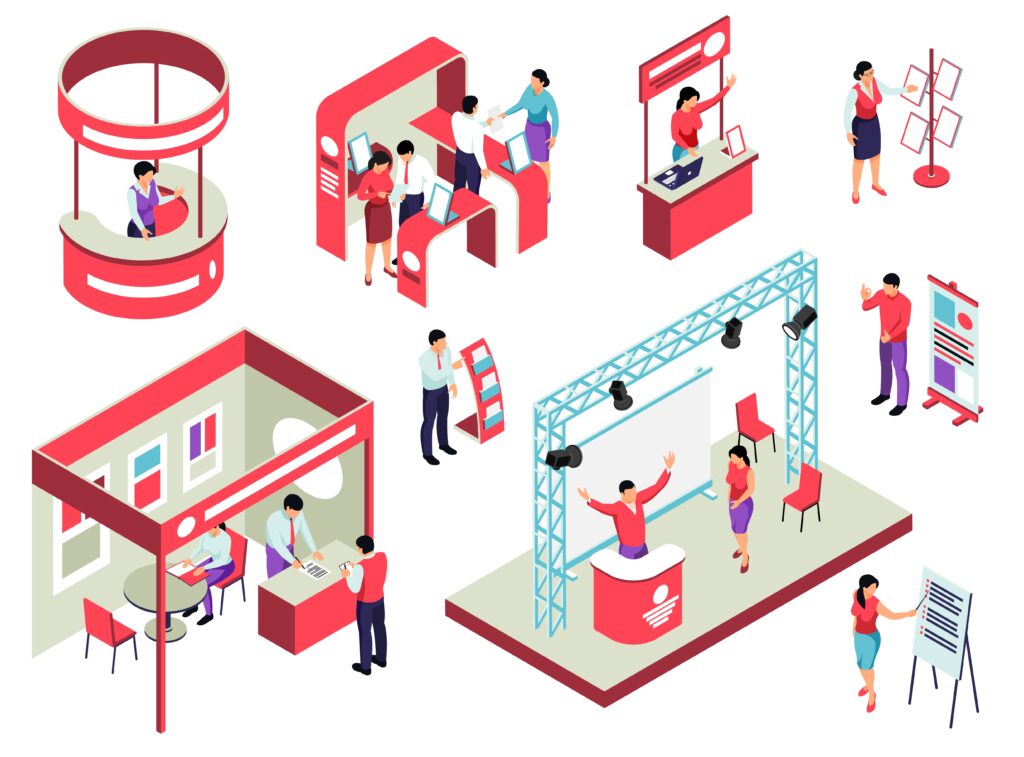
Breaking into a new industry can feel like climbing a wall without a ladder. Many professionals have transferable skills but struggle to convince employers they can make the leap. A cross-sector hiring fair removes these barriers by offering industry-specific career coaching, networking with hiring managers, and skill assessment sessions.
Candidates from adjacent industries—such as retail professionals transitioning to corporate customer success roles or finance experts exploring fintech—can engage in interactive workshops and career mapping sessions to see how their skills align with your company’s needs. Companies benefit by expanding their talent pool beyond the usual suspects, bringing in fresh perspectives and untapped potential.
Advantages of “Break Into Our Industry” Cross-Sector Hiring Fairs
- Expanded Talent Pool: By welcoming professionals from adjacent industries, you access a broader range of candidates with diverse skill sets, enhancing your organization’s talent diversity.
- Fresh Perspectives: Professionals transitioning from other sectors bring new ideas and approaches, fostering innovation and potentially transforming your team’s dynamics.
Best Practices for Successful Cross-Sector Hiring Fairs
- Highlight career transition success stories from your employees to inspire attendees.
- Offer one-on-one career consultations and resume critiques to guide candidates.
- Partner with training providers to create industry-specific learning paths.
- Provide a fast-track interview process for standout candidates.
Anonymous “Career Interest” Workshops & Resume Drop Events

Some professionals are actively considering a career move but can’t risk being seen at a recruiting event—especially if they’re currently employed by a competitor. Hosting an Anonymous Career Interest Workshop provides a safe, low-pressure environment where they can explore opportunities without making a formal job application. The event can include industry trend discussions, leadership panels, and private resume drop boxes where attendees can discreetly express interest in open roles. Virtual and in-person private networking sessions can further help candidates connect with your hiring team without raising red flags.
Advantages of Anonymous “Career Interest” Workshops & Resume Drop Events
- Confidential Talent Pool: This format attracts professionals who are currently employed and hesitant to publicly explore new opportunities, allowing you to tap into a highly skilled yet discreet candidate pool without compromising their privacy.
- Reduced Candidate Anxiety: By eliminating the formal application process, candidates feel more comfortable engaging with your organization. This encourages genuine interest in your company without the pressure or fear of jeopardizing their current job.
Best Practices for Successful Resume Drop Events
- Ensure all interactions are confidential, with private resume submissions.
- Allow virtual participation for candidates who prefer full anonymity.
- Offer career coaching and skill assessments to help them visualize a transition.
- Follow up discreetly with interested attendees after the event.
Host a Virtual Reality (VR) Experience

Integrating Virtual Reality (VR) into your recruitment process offers candidates an immersive glimpse into your company’s environment and culture. By leveraging VR technology, applicants can transform almost all of the above-mentioned recruiting event ideas into a virtual experience – virtual office tours, engaging in simulated work tasks, or experiencing a day in the life of an employee, providing a unique and engaging connection with your organization.
Advantages of Hosting a Virtual Reality (VR) Experience
- Showcases Innovation: Utilizing VR in recruitment highlights your company’s commitment to technological advancement, appealing to tech-savvy candidates.
- Enhances Candidate Engagement: Like any new form of technology, an immersive VR experience can captivate candidates’ interest, offering a memorable and interactive insight into your company.
Real-World Implementations
- Deutsche Bahn’s VR Initiative: The German railway company employed VR to give younger generations an in-depth understanding of roles like train conductors, addressing low interest in such positions.
- Walmart’s VR Assessments: Walmart utilizes VR not only to train floor staff but also to better assess candidates for higher-level positions, enhancing their recruitment process.
Best Practices for Effective VR Recruitment Experiences
- Develop Authentic Content: Ensure the VR experience accurately represents your company’s environment and culture to provide genuine insights to candidates.
- Provide Technical Support: Offer guidance and support for candidates unfamiliar with VR technology to ensure a smooth experience.
- Offer Alternative Options: Provide non-VR alternatives, such as video tours or interactive webinars, for candidates without VR access.
Conduct Online Events

Hosting online recruitment events, such as webinars and virtual career fairs, has revolutionized the way organizations connect with potential candidates, especially in an increasingly digital world. These virtual platforms enable companies to showcase their culture, share job opportunities, and engage with a diverse talent pool beyond geographical constraints.
Why Conduct Online Recruitment Events?
- Global Reach: Virtual events eliminate geographic barriers, allowing companies to tap into a wider audience of potential candidates.
- Cost-Effectiveness: By reducing expenses related to venue rentals, travel, and logistics, online events offer a more economical alternative to traditional in-person gatherings.
- Flexibility and Convenience: Candidates can participate from any location with internet access, making it easier for them to engage without significant disruptions to their schedules.
Real-World Success Stories
- Virtual Career Days Sweden: This initiative rapidly became Sweden’s largest digital career event, attracting over 25,000 students and recent graduates. More than 100 clients utilized the platform to identify and recruit future talents through chat, video, and speed interviews.
- Ivy+ Just-In-Time Career Fair: This four-hour virtual event connected 78 employers with 1,405 students through 40 speeches, 78 live booths, and 730 one-on-one chats, demonstrating the efficacy of virtual platforms in facilitating meaningful employer-candidate interactions.
And hundreds more virtual recruitment events to start finding qualified talent at:
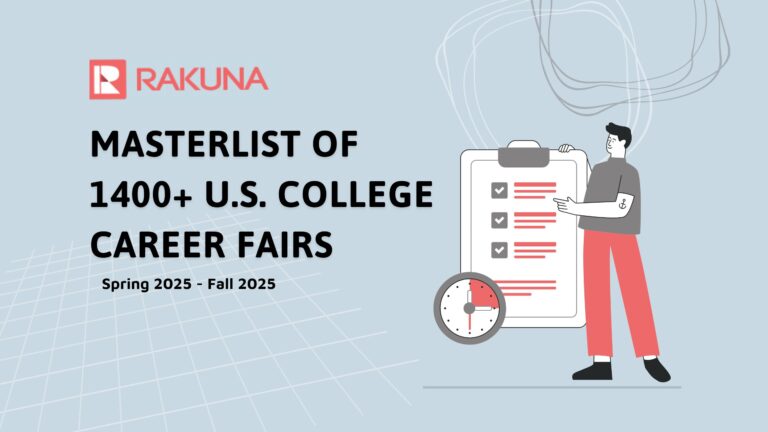
Best Practices for Successful Online Events
- Select User-Friendly Platforms: Choose intuitive webinar platforms with interactive features to facilitate engaging presentations. Think:
✅ Demio – A straightforward, no-frills webinar platform designed for ease of use. It offers a simple and intuitive experience, starting at $45/month for up to 50 attendees per webinar.
✅ BigMarker – A highly customizable webinar solution with built-in automation to streamline repetitive tasks. Pricing is available upon request, making it ideal for businesses needing tailored webinar automation.
✅ Crowdcast – A versatile webinar platform that allows simultaneous streaming to multiple services. With in-depth event analytics, it starts at $34/month for 100 attendees and 10 hours of streaming per month.
💡 Read more: More webinar platform options for your recruiting team
- Promote Effectively: Utilize email campaigns, social media, and industry networks to maximize event visibility and attract a diverse audience.
- Provide Technical Support: Offer clear instructions and assistance to ensure participants can access and navigate the virtual event seamlessly.
- Engage Attendees: Incorporate interactive elements such as polls, quizzes, and breakout sessions to enhance participant involvement.
- Consider Time Zones: Schedule events at times that accommodate participants from various regions to maximize attendance.
Organize “Ask Me Anything” Sessions:
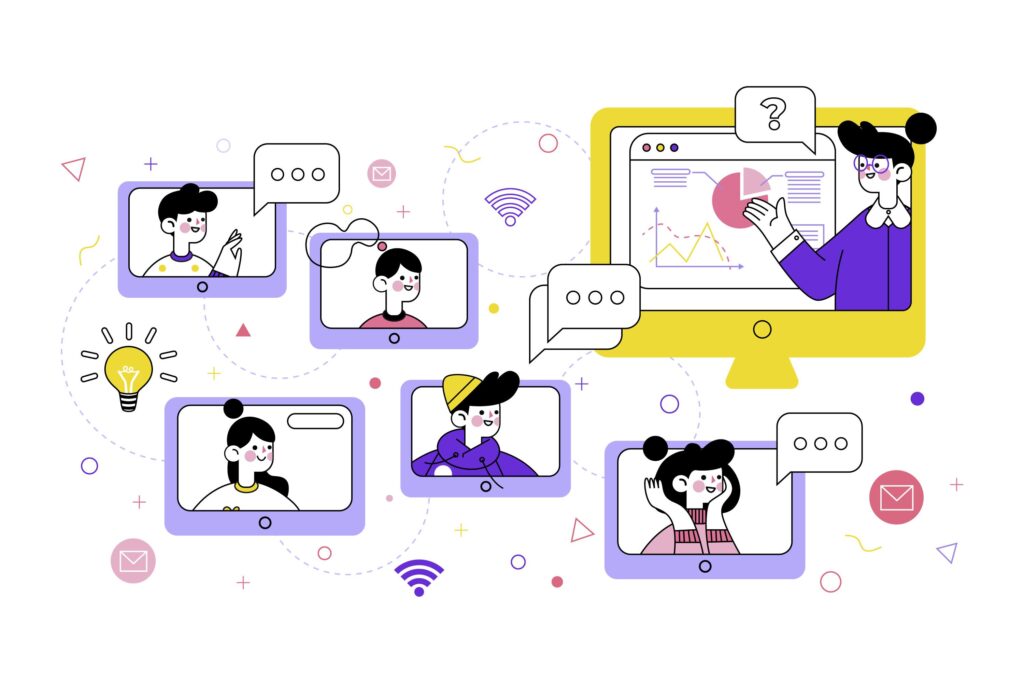
Organizing “Ask Me Anything” (AMA) sessions is an innovative approach to engage potential candidates by fostering open dialogue and transparency. These sessions enable participants to pose questions directly to industry experts and company representatives, offering insights into company culture, industry trends, and specific roles. By facilitating such interactions, organizations demonstrate a commitment to candidate-centric recruitment practices, enhancing their appeal to prospective employees.
Why Host AMA Sessions?
- Enhance Transparency: AMAs provide a platform for honest communication, allowing candidates to gain authentic insights into the organization.
- Build Trust: Open forums where any question is welcomed can strengthen trust between potential hires and the company.
- Showcase Company Culture: These sessions offer a glimpse into the company’s values and work environment, helping candidates assess cultural fit.
Real-World Success Stories
Take a stroll through Reddit, for example, this thread “I’m a Talent Acquisition/ Recruitment Manager – Ask Me Anything!” and see how one would normally run an AMA.
Best Practices for Successful AMA Sessions
- Promotion: Utilize social media, email newsletters, and industry forums to attract a broad audience.
- Preparation: Have a set of common questions ready to initiate discussions and encourage participation.
- Guidelines: Establish clear communication guidelines to maintain a respectful environment.
- Advance Submissions: Encourage candidates to submit questions beforehand to ensure comprehensive responses.
- Recording: Provide recordings of the session for those unable to attend live.
- Follow-Up: Collect feedback post-session to improve future AMAs and address any lingering questions.
Alumni & Boomerang Employee Reconnect Events

Alumni and Boomerang Employee Reconnect Events are strategic initiatives aimed at re-engaging former employees who left on good terms and may be open to returning. These events, such as company-hosted dinners, networking mixers, or virtual catch-up sessions, provide platforms for past team members to reconnect with former colleagues, learn about new opportunities, and hear about company growth and changes. Since these individuals are already familiar with the company culture and workflows, they often require less onboarding and ramp-up time compared to new hires. Companies can use these occasions to showcase career advancement opportunities, discuss changes that address past concerns, and make a compelling case for their return.
Advantages of Alumni & Boomerang Employee Reconnect Events
- Targets Pre-Qualified Talent: Former employees have proven track records and an existing understanding of the company, reducing hiring risks.
- Reduces Onboarding Time: Their familiarity with company processes and culture allows for a quicker transition back into the organization.
- Reinforces Employer Brand: Maintaining long-term relationships with alumni showcases a supportive and inclusive company culture.
Best Practices for Successful Reconnect Events
- Establish an Alumni Network: Create a dedicated platform to keep former employees engaged through newsletters, exclusive events, and regular updates.
- Highlight Success Stories: Showcase examples of boomerang employees who have successfully returned and advanced within the company.
- Foster a Casual Atmosphere: Keep events lighthearted and focused on networking rather than direct recruitment pitches.
- Offer Incentives: Provide benefits such as referral bonuses or tailored job opportunities to encourage alumni to consider returning.
- Address Past Concerns: Utilize feedback from exit interviews and alumni to improve the work environment and make it more attractive for returning talent.
Invite Candidates to Company Events
Inviting candidates to company events, such as happy hours or team-building activities, offers a relaxed and informal setting for interaction and networking. These events provide candidates with an opportunity to engage with current employees, learn about company culture, and experience the workplace environment firsthand.
By attending these events, candidates can get a sense of the company’s values, dynamics, and team spirit, helping them determine if it’s a good fit for them professionally and culturally. Additionally, these events allow employers to showcase their organization in a positive light, foster connections with potential hires, and strengthen their employer brand.
Advantages of Inviting Candidates to Company Events
- Authentic Cultural Insight: Candidates gain a genuine understanding of the company’s work environment, values, and team dynamics, aiding in assessing cultural fit.
- Relationship Building: Informal interactions facilitate meaningful connections between candidates and current employees, fostering rapport and mutual understanding.
- Enhanced Employer Branding: Showcasing the company’s culture and employee engagement initiatives can strengthen its reputation as an attractive workplace.
Real-World Implementations
- Taco Bell’s Hiring Parties: Taco Bell has hosted “hiring parties,” blending traditional job fairs with social events, allowing candidates to experience the company culture firsthand while participating in the recruitment process.
- Shake Shack’s Modern Job Fairs: Shake Shack has organized contemporary job fairs that combine fun activities with recruitment, providing candidates with a taste of the company’s vibrant work environment.
Best Practices for Successful Company Events
- Align Activities with Company Culture: Choose event formats and activities that reflect company values, such as team-building games or social outings, to provide candidates with an authentic experience.
- Thoughtful Planning: Select venues that are convenient, comfortable, and conducive to networking and interaction, ensuring a welcoming atmosphere for all participants. Consider using the company’s grounds to host this type of event and create opportunities for workplace tours.
- Employee Engagement: Encourage current employees to actively participate, share their experiences, and engage with candidates to provide genuine insights into the company.
- Structured Networking: Facilitate opportunities for candidates to connect with employees from various departments and levels, promoting a comprehensive understanding of the organization.
Organize Contests with Practical Cases
Organizing contests with practical cases enables candidates to showcase their problem-solving abilities in simulated work environments. These competitions present real-world scenarios relevant to the role or industry, requiring participants to analyze issues and propose solutions. This approach allows employers to assess candidates’ analytical skills, creativity, and decision-making processes, facilitating the identification of top talent.
Advantages of Organizing Practical Case Contests
- Demonstration of Problem-Solving Skills: Candidates engage in realistic contexts, highlighting their analytical capabilities and creativity.
- Insight into Candidates’ Thought Processes: Employers gain a deeper understanding of participants’ decision-making and problem-solving approaches.
- Enhanced Candidate Engagement: These interactive experiences increase candidates’ interest and investment in the recruitment process.
Real-World Implementations
IIM Lucknow’s Manfest-Varchasva: Manfest-Varchasva is an annual management and cultural festival hosted by the Indian Institute of Management Lucknow in the third week of January each year. The three-day festival is the largest business school festival in Asia.
This annual management and cultural festival hosts various competitions, including case study analyses, attracting participants globally and facilitating interaction among students, faculty, and corporations.
Best Practices for Effective Case Contests
- Develop Relevant Case Studies: Design scenarios that mirror real-world challenges pertinent to the role or industry.
- Communicate Objectives and Criteria: Clearly outline the contest’s goals, expectations, and evaluation standards to participants.
- Provide Necessary Resources: Equip candidates with the data and information required for effective case analysis.
- Facilitate Interaction: Offer opportunities for participants to ask questions and engage with organizers for clarifications.
- Set Realistic Timeframes: Establish deadlines that reflect real-world constraints to simulate authentic work environments.
- Incorporate Team-Based Challenges: Include both individual and collaborative tasks to assess teamwork and collaboration skills.
- Ensure Fair Evaluation: Implement transparent assessment processes, possibly involving multiple judges, to maintain objectivity.
Conduct Hands-On Learning Workshops
Conducting hands-on learning workshops is an effective strategy for engaging potential candidates by offering interactive sessions that allow participants to develop new skills or enhance existing ones. These workshops not only demonstrate your company’s commitment to professional growth but also provide a platform to connect with individuals eager to learn and grow, often indicative of high potential.
Advantages of Hands-On Learning Workshops
- Commitment to Development: Hosting such workshops highlights your organization’s dedication to continuous learning and employee development.
- Attracting High-Potential Individuals: Participants seeking skill enhancement are typically motivated and possess a growth mindset, aligning with qualities desired in high-potential employees.
- Talent Assessment: These interactive sessions offer a unique opportunity to observe and evaluate participants’ aptitude, enthusiasm, and suitability for the industry in a practical setting.
Real-World Implementations
Blackstone’s Career Pathways Program: To address labor shortages in specialized technical roles, Blackstone’s QTS data centers launched the Data Center Academy, focusing on training candidates for data center positions. This initiative is part of the broader Career Pathways program, which has employed over 10,500 underrepresented individuals since its inception.
Best Practices for Effective Workshops
- Relevant Topics: Choose workshop subjects that are pertinent to your industry and resonate with the interests of your target audience.
- Strategic Promotion: Advertise the event through professional networks, educational institutions, and social media platforms to reach a diverse and relevant participant pool.
- Experienced Facilitators: Engage seasoned employees as facilitators to share real-world insights and practical knowledge, enhancing the workshop’s credibility and impact.
- Credentialing: Provide participants with certificates or digital badges upon completion, adding value to their professional profiles and recognizing their commitment to skill development.
- Showcase Expertise: Utilize the workshop as an avenue to demonstrate your company’s expertise and thought leadership within the industry.
- Feedback Collection: Gather participant feedback to refine future workshops and identify potential candidates who exhibit enthusiasm and aptitude.
Run Diversity Seminars
Hosting diversity seminars is a powerful strategy for organizations aiming to foster inclusive workplaces and attract talent that values equity and diversity. These educational events delve into essential topics such as unconscious bias, cultural competence, and strategies for creating environments where all employees feel valued. By organizing such seminars, companies not only demonstrate a genuine commitment to diversity but also position themselves as leaders in promoting inclusive cultures.
Why Run Diversity Seminars?
- Attract Diverse Talent: Companies that prioritize diversity are more appealing to candidates seeking inclusive workplaces.
- Enhance Employee Engagement: Educating staff on diversity fosters a more inclusive environment, leading to increased job satisfaction and retention.
- Boost Innovation: Diverse teams bring varied perspectives, driving creativity and better decision-making.
Real-World Success Stories
- Cisco’s Commitment to Diversity: Cisco has been recognized for its dedication to workplace equality, earning top positions on diversity leader lists. The company implements initiatives like the “proximity initiative,” which fosters understanding of diverse identities, leading to behavioral changes and promoting allyship within the organization.
- Out & Equal Workplace Summit: This annual event gathers thousands of LGBTQ+ employees and allies to focus on workplace equality. The summit includes workshops, panel discussions, and networking opportunities, highlighting the impact of dedicated diversity seminars in fostering inclusive work environments.
Best Practices for Memorable Diversity Workshop
- Collaborate with Experts: Partner with diversity and inclusion specialists to design and facilitate impactful seminars.
- Ensure Diverse Representation: Include a variety of speakers and panelists to provide multiple perspectives.
- Create Safe Spaces: Foster environments where participants feel comfortable engaging in open and respectful dialogue.
- Provide Actionable Takeaways: Equip attendees with practical tools and strategies to promote diversity in their daily work.
💡 Further Reading: 16 Tried-And-True Diversity Recruiting Strategies for Recruiters
Recruiting Event Ideas: Host a Hackathon
Imagine bringing together a group of tech enthusiasts, giving them a challenging problem, and watching them craft innovative solutions—all within a tight timeframe. That’s the essence of a hackathon. For companies, it’s more than just an event; it’s a dynamic way to:
- Spot Top Talent: See candidates in action, tackling real-world problems, and demonstrating their skills beyond what’s on their resumes.
- Showcase Your Culture: Let participants experience firsthand your company’s environment, values, and the kind of projects they might work on.
- Drive Innovation: Fresh minds often bring fresh ideas. The solutions crafted during hackathons can offer new perspectives and approaches to existing challenges.
Real-Life Success Stories
Many organizations have harnessed the power of hackathons for recruitment:
- AB InBev’s Diversity Hackathon: Aimed at empowering women in tech, this event provided participants with opportunities to tackle real business problems using data, technology, and machine learning, effectively promoting diversity in their hiring process.
- GlobalLogic’s Efficient Candidate Evaluation: By integrating hackathons, GlobalLogic streamlined their recruitment, enabling them to assess candidates’ skills in just 20 minutes, leading to faster and more effective hiring decisions.
Best Practices to Maximize a Hackathon
- Define Clear Objectives: Align challenges with your company’s needs to ensure relevance.
- Promote Widely: Leverage tech communities, universities, and social platforms to attract a diverse and talented pool of participants.
- Provide Mentorship: Engage your team members as mentors or judges to guide participants and assess their performance effectively.
- Offer Incentives: Attractive prizes or unique opportunities can boost engagement and participation.
- Gather Feedback: Post-event insights from participants can help refine future hackathons and enhance your recruitment strategies.
- Highlight Company Culture: Use the event as a platform to showcase your organization’s values, work environment, and commitment to innovation.
- Follow Up Proactively: Reach out to standout performers promptly to discuss potential roles or collaborations.
- Collaborate for Impact: Partnering with other organizations or sponsors can expand the event’s reach and resources.
Recruiting Event Ideas: Mentorship Programs at Universities
Engaging with universities through mentorship programs is a strategic avenue for companies aiming to cultivate future talent and strengthen ties with educational institutions. By connecting professionals with students, these initiatives bridge the gap between academia and industry, offering mutual benefits that extend beyond traditional recruitment methods.
Why Implement University Mentorship Programs?
- Talent Development: Mentorship provides students with real-world insights, enhancing their readiness for the workforce.
- Early Access to Emerging Talent: Companies can identify and nurture potential candidates early, tailoring development to align with organizational needs.
- Enhanced Employer Branding: Active involvement in educational initiatives showcases a company’s commitment to community and professional growth, bolstering its reputation.
Real-World Success Stories
- AltFinance’s Commitment to Diversity: Established with a $90 million endowment from leading firms like Apollo Global Management, AltFinance partners with Historically Black Colleges and Universities (HBCUs) to provide mentorship and training, preparing students for careers in finance. This initiative underscores the impact of dedicated mentorship on diversifying industries.
- Zed Factor Fellowship in Aerospace: Launched in 2020, this program offers paid internships and executive mentorship to underrepresented students pursuing aerospace careers. By collaborating with organizations like Planet Labs and The Planetary Society, the fellowship exemplifies how mentorship can drive inclusivity and innovation in specialized fields.
Best Practices for Successful University Internship Program
- Collaborate with University Entities: Partner with career centers, alumni associations, and student organizations to facilitate program development and outreach.
- Tailor Mentorship Experiences: Align mentorship activities with the interests and career goals of students to maximize engagement and effectiveness.
- Integrate Practical Opportunities: Offer internships or job shadowing to complement mentorship, providing hands-on experience.
- Encourage Experience Sharing: Have mentors share personal career journeys to inspire and inform students.
- Facilitate Cross-Departmental Networking: Expose students to various facets of the company to broaden their understanding and interest.
- Maintain Engagement Post-Event: Keep in touch with participants to nurture relationships and explore future recruitment possibilities.
💡 Further Reading: How To Develop A Career Fair Communication Strategy
Visit High Schools or Colleges
Engaging with high schools and colleges through targeted visits is a strategic approach to cultivating early relationships with emerging talent and aligning educational experiences with industry needs. These initiatives can encompass career fairs, informational sessions, workshops, and networking events, all tailored to resonate with students’ interests and aspirations.
Advantages of Educational Engagement
- Early Talent Identification: Interacting with students before they enter the workforce allows companies to identify and nurture potential talent, aligning their skills with industry requirements.
- Brand Visibility: Regular presence in educational institutions enhances company recognition among students and educators, positioning the organization as an employer of choice.
- Educational Alignment: Collaborations with schools can lead to curriculum enhancements that better prepare students for real-world challenges, benefiting both the industry and future professionals.
Real-World Implementations
- Balyasny Asset Management’s Stock-Pitch Competition: This $23 billion hedge fund engages with university students through a stock-pitch competition, offering participants a chance to present to portfolio managers. This initiative not only provides prize money but also opens pathways to internships, effectively integrating students into the finance industry.
- Revitalization of High School Vocational Programs: In response to evolving job markets, schools like Middleton High in Wisconsin have modernized technical education facilities. This revamp has led to increased student interest and enrollment in vocational programs led by industry leaders
Best Practices for Effective Engagement
- Collaborative Planning: Constant communication wins the day – Partner with career services, faculty, and student organizations to design events that meet mutual goals.
- Interactive Learning: Incorporate hands-on workshops, simulations, or company tours to provide experiential learning opportunities.
- Career Development Support: Offer information on internships, mentorships, and entry-level positions to facilitate students’ career progression.
- Alumni Involvement: Highlight success stories of alumni within the company to inspire and relate to current students.
- Continuous Engagement: Maintain a consistent presence through recurring events, guest lectures, and active participation in academic initiatives.
Lead Lectures or Seminars
Leading lectures or seminars on your industry’s current landscape and future direction allows your company to share knowledge, insights, and emerging trends with potential candidates. These sessions can cover topics such as market dynamics, technological advancements, industry challenges, and career opportunities. By positioning your company as a thought leader, you attract individuals who are passionate about the field and align with your organization’s vision.
Advantages of Leading Lectures or Seminars
- Establishing Thought Leadership: Delivering insightful presentations showcases your company’s expertise and positions it as a leader in the industry.
- Attracting Engaged Talent: Individuals attending these sessions are often deeply interested in the subject matter, indicating a strong alignment with your company’s mission and values.
- Networking Opportunities: These events provide a platform to connect with potential candidates, industry peers, and other stakeholders, fostering valuable professional relationships.
Real-World Implementations
- Google’s Tech Talks: Google regularly hosts technical talks and seminars open to the public, covering various topics from software engineering to product design. These sessions not only share knowledge but also attract potential talent interested in Google’s projects and culture.
- TEDx Events: Companies often sponsor or participate in TEDx events, delivering talks that highlight their expertise and innovative approaches, thereby attracting like-minded professionals and potential candidates.
Best Practices for Effective Lectures or Seminars
- Identify Relevant Topics: Select subjects that resonate with your target audience and reflect current industry trends and challenges.
- Engage Expert Speakers: Invite knowledgeable and engaging speakers, including internal leaders and external experts, to provide diverse perspectives.
- Incorporate Interactive Elements: Include Q&A sessions, panel discussions, or workshops to encourage participant engagement and deeper understanding.
- Leverage Technology: Utilize webinars or live-streaming to reach a broader audience, especially for geographically dispersed participants.
- Promote the Event Strategically: Use social media, industry forums, and professional networks to advertise the event and attract a diverse audience.
- Gather and Act on Feedback: Collect participant feedback to assess the event’s effectiveness and identify areas for improvement in future sessions.
Organize Panel Discussions with Company Leaders
Organizing panel discussions with company leaders offers candidates valuable insights into your organization’s vision, values, and strategic direction. These events typically feature senior executives and subject matter experts sharing their perspectives on various topics related to the company and industry. By participating, candidates gain firsthand knowledge of the leadership team and company culture, fostering a deeper connection to the organization.
Advantages of Panel Discussions
- Showcasing Leadership and Culture: Candidates can directly engage with company leaders, gaining a genuine understanding of the organization’s ethos and strategic priorities.
- Interactive Engagement: These discussions provide a platform for candidates to ask questions and interact with decision-makers, enhancing their interest and investment in the recruitment process.
- Demonstrating Transparency: Open dialogues with leadership signal the company’s commitment to transparency and inclusivity, strengthening its employer brand.
Real-World Implementations
TD Madison’s Panel Discussions: Executive recruitment firm TD Madison incorporates panel discussions involving leaders from various departments, mid-level technical colleagues from inside the organization, and frequently technical professionals from outside the organization to assess leadership candidates’ technical skills and vision, ensuring alignment with company culture.
Best Practices for Effective Panel Discussions
- Define Clear Objectives: Establish the purpose of the discussion to align topics with both company goals and candidate interests.
- Select Diverse Panelists: Include leaders from various departments to provide a holistic view of the organization and its functions.
- Prepare Thoughtful Questions: Develop questions that elicit insightful responses, showcasing the company’s strategic vision and addressing potential candidates’ curiosities.
- Engage a Skilled Moderator: A neutral, experienced moderator can facilitate balanced discussions, ensuring all panelists contribute meaningfully.
- Encourage Audience Interaction: Allocate time for Q&A sessions, allowing candidates to engage directly with leaders and express their perspectives.
- Provide Post-Event Resources: Share summaries or recordings of the discussion to reinforce key messages and maintain engagement with attendees.
Organize a Casual Game Night
Organizing a casual game night offers a relaxed environment where potential candidates can interact with current employees, fostering genuine connections. This informal setting allows attendees to showcase their personalities and soft skills, providing recruiters with insights beyond traditional interviews. Engaging in games encourages teamwork, strategic thinking, and adaptability, which are valuable traits in any professional setting.
Advantages of Organizing a Casual Game Night
- Authentic Interactions: A relaxed atmosphere encourages genuine conversations, allowing both candidates and employees to engage more openly.
- Assessment of Soft Skills: Observing candidates during games provides insights into their teamwork, problem-solving, and communication abilities.
- Showcasing Company Culture: Such events highlight the organization’s commitment to work-life balance and a collaborative environment.
Real-World Implementations
Game Night Live & Game Night Out: These companies specialize in hosting customized game nights for corporate events, tailoring content to promote team building and engagement. Some of their large corporate customers include Hyatt Group, Google, Deloitte, and United.
Best Practices for Effective Game Nights
- Select Appropriate Games: Choose games that promote teamwork and strategic thinking, such as trivia or collaborative challenges like Monopoly or Pictionary.
- Foster Inclusivity: Create a welcoming environment where all participants feel comfortable and engaged.
- Diverse Employee Participation: Encourage employees from various departments to attend, offering candidates a broad perspective of the company.
- Subtle Branding: Use the event to communicate your company’s values and mission without overtly turning it into a recruitment drive.
- Feedback Collection: Gather insights from attendees to refine future events and better align them with recruitment objectives.
Organize a “Day in the Life” Shadowing Program
A “Day in the Life” Shadowing Program allows potential candidates to experience firsthand the daily responsibilities and environment of a role they’re interested in. This immersive approach provides deeper insights into the position and company culture, facilitating informed career decisions.
Advantages of a Shadowing Program
- Realistic Job Preview: Candidates gain a clear understanding of daily tasks and responsibilities, leading to more informed career choices.
- Enhanced Transparency: Demonstrates the organization’s openness, building trust and aligning expectations between candidates and employers.
- Assessment Opportunities: Employers can observe candidates’ adaptability, enthusiasm, and cultural fit in a real-world setting.
Best Practices for Implementing a Shadowing Program
- Define Clear Objectives: Establish the program’s goals, such as skill development, leadership training, or cross-functional knowledge sharing.
- Identify Suitable Roles: Select positions that offer valuable learning opportunities and align with the program’s objectives.
- Develop a Structured Framework: Outline the program’s duration, activities, and expected outcomes to ensure consistency and effectiveness.
- Train Participants: Prepare both mentors and candidates for the shadowing experience by clarifying expectations and responsibilities.
- Ensure Confidentiality: Address any privacy or data protection concerns to maintain trust and compliance.
- Highlight Career Paths: Use the program to showcase potential career development opportunities within the organization.
Live Project Collaboration Events
Sometimes the best way to assess a candidate’s skills isn’t through a resume or an interview – it’s by seeing them in action. Live Project Collaboration Events offer candidates the opportunity to work on real short-term projects alongside your existing team.
Instead of a traditional contest hiring event, this approach provides an immersive experience where candidates can showcase their abilities alongside your organization’s employees in a teamwork environment.
These events can range from a one-day sprint to a week-long collaboration, focusing on industry-specific challenges, product brainstorming, or even ongoing company initiatives.
Advantages of Live Project Collaboration Events
- Real-Time Skill Assessment: Rather than relying on resumes or interview answers, you gain firsthand insight into a candidate’s ability to problem-solve, collaborate, and deliver under pressure—traits that are often difficult to gauge through traditional methods.
- Enhanced Candidate Engagement: This format allows candidates to experience your company’s culture and work dynamics, fostering a deeper connection and ensuring a more genuine interest in the role and organization.
- Improved Team Integration: These events serve as a low-risk trial period for both the candidate and your team. They provide an opportunity for seamless integration into real-time workflows, helping both sides determine whether there’s a strong fit before making a long-term commitment.
Best Practices for Successful Live Project Collaborations
- Clearly define project scope and expectations to ensure candidates have a meaningful experience.
- Assign mentors or team leads to guide candidates and provide structured feedback.
- Offer a stipend or incentives for participants to ensure commitment and professionalism.
- Use the event as both a recruiting and employer branding opportunity—share success stories publicly.
- Follow up with top-performing candidates quickly to move them into the hiring process.
“Soft Landing” Hiring Events for Laid-Off Employees
When companies announce layoffs, many skilled professionals suddenly find themselves in job-search mode—often through no fault of their own. A Soft Landing Hiring Event helps these candidates transition quickly by offering real-time job openings, resume support, and immediate networking with hiring managers.
Unlike traditional job fairs, these events emphasize stability, career coaching, and emotional support, ensuring candidates feel valued rather than just another applicant in the system. This type of event is not just about filling positions; it’s about positioning your company as a compassionate, people-first employer in the industry.
Advantages of “Soft Landing” Hiring Events for Laid-Off Employees
- Swift Talent Acquisition: Laid-off professionals are often highly motivated to secure new positions promptly. Hosting dedicated hiring events allows your organization to connect with these candidates, expediting the recruitment process and reducing time-to-fill for critical roles.
- Enhanced Employer Branding: Demonstrating compassion during challenging times positions your company as a people-first organization. This approach not only attracts top talent but also fosters goodwill within the industry, enhancing your reputation as an empathetic employer.
- Access to Skilled Professionals: Laid-off individuals typically possess valuable experience and transferable skills. Engaging with them provides an opportunity to enrich your workforce with seasoned professionals who can contribute immediately and drive organizational success.
Best Practices for Successful “Soft Landing” Hiring Events
- Connect with competitor alumni groups or layoff lists to invite displaced employees.
- Offer on-the-spot resume reviews and fast-track interviews.
- Include mental health and career transition support to show genuine care.
- Follow up with personalized outreach to nurture relationships with top candidates.
To Conclude …
In a market where talent is increasingly hard to come by, innovative recruiting events can be a game-changer. These 19 ideas give you the tools to break through the noise, attract both active and passive candidates, and build stronger, more engaged teams. By thinking outside the box and offering unique experiences, you position your company not just as a place to work but as an organization candidates actively want to join.

Team Rakuna
The Rakuna Team comprises a diverse group of professionals hailing from various corners of the world.
With a passion to enable organizations to hire their next waves of talents, we are dedicated to help organizations stay updated on important recruiting technology and industry best practices.

